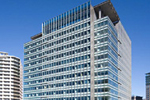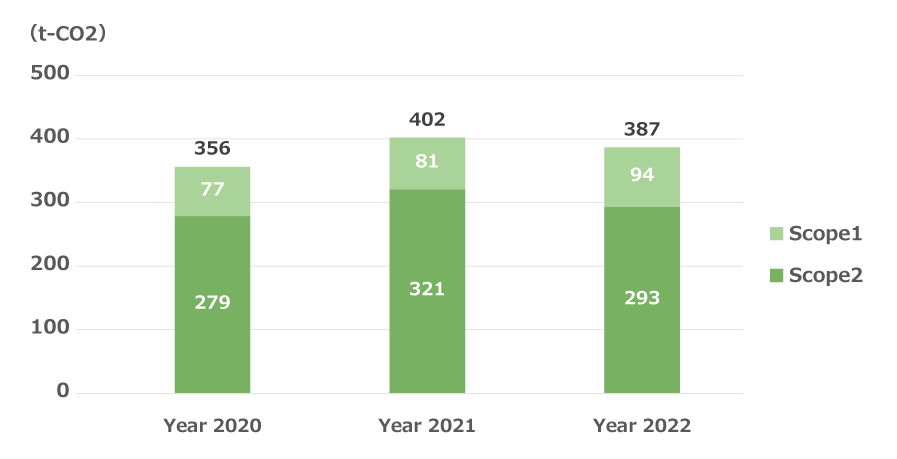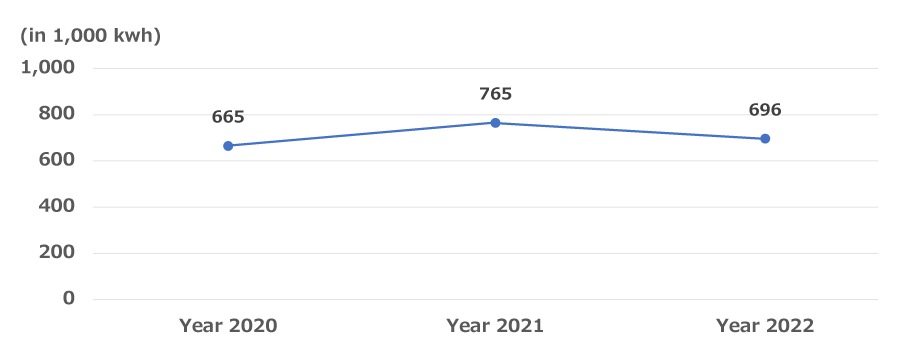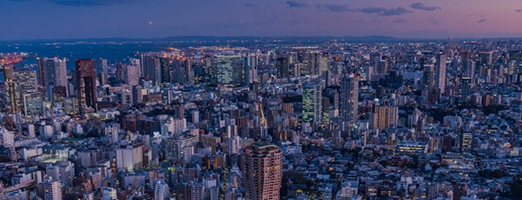Climate Change
Utilizing the TCFD Recommendations to Capture Business Opportunities and Mitigate Risks
The electronics industry, in which the Group operates, is undergoing a period of great change as demand for new electronic parts is expected to grow along with the progress of IoT to promote digital transformation, the widespread use of AI and industrial robots, and the rapid shift to EVs in the automobile industry to achieve carbon neutrality. In light of the great uncertainty regarding environmental changes associated with climate change, we place importance on having a portfolio that enables us to respond quickly and optimally to changes in the diverse business environment and business challenges, as well as to appropriately address risks to ensure that we capture the growth opportunities presented by climate change. While using the TCFD recommendations as a benchmark in verifying the adequacy of our climate change responses, we steadily capitalize on growth opportunities and address risks in order to achieve sustainable growth. While some of the TCFD recommendations are still under discussion, and others will take multiple years to complete, we intend to fully disclose the matters we have addressed in due course.
Governance
Our group has the Sustainability Working Group, established under the Risk Management Committee chaired by our President/CEO.The Sustainability Working Group examines mid- and long-term challenges in countering climate change and other sustainability promotion efforts, and shares and discusses important issues on business risks, opportunities and measures, and reports the results to the Board of Directors.Under the risk management framework at the supervision of the Board of Directors, the working group continues to analyze groupwide risks concerning challenges facing our overall sustainability promotion efforts and examine and implement countermeasures.
Strategy
We consider various risks and opportunities surrounding climate change as one of the important perspectives in building business strategies.
Because the impact of climate change may manifest in the mid- to long-term future, we identify risks and opportunities not only for the near future but also for the mid- to long-term future. Also in view of changes in external trends, we will regularly review our analyses and evaluations of risks and opportunities.
Risk Management
For risks and opportunities related to climate change that our group must take into account, the Sustainability Working Group assesses and identify them based on the results of internal and external survey conducted regularly. Upon assessing and identifying risks and opportunities, we utilize the findings in building strategies in our sustainability promotion framework.
Indices
In order to capture climate change-related opportunities and reduce risks, the Group has set "reduction of greenhouse gas (GHG) emissions" as its mid- to long-term climate change response indicator, and has calculated Scope 1 and 2 for FY2020 and beyond.
In the future, we will continue to calculate Scope 1 and 2 for our group companies and Scope 3 for our supply chain, as well as to study targets, measures, and plans for "reduction of GHG emissions.
Goals
We have set our greenhouse gas (GHG) emissions reduction target at 50% reduction in FY2030, with 2018 as the base year,
We have set a target of carbon neutrality (virtually zero total CO2 emissions) by 2050, with 2018 as the base year.
Index: GHG Emission Reduction
Yearly Transition of Greenhouse Gas (GHG) Emission
Yearly Transition of Electric Power Consumption
* The Data shown here is the result of Shinko Shoji Co., Ltd. only.
* Scope 1 refers to our direct greenhouse gas emission (i.e. fuel consumption, industrial process), while Scope 2 refers to indirect emission (i.e. emission caused by consumption of power and heat purchased).
* Scope 1 is based on the "List of Calculation Methods & Emission Factors in Calculation, Report & Publication Regime" by the Ministry of Environment and the Ministry of Economy, Trade and Industry.
* Scope 2 is based on the "List of Calculation Methods & Emission Factors in Calculation, Report & Publication Regime" by the Ministry of Environment and the Ministry of Economy, Trade and Industry and the "Adjusted Emission Factors" for respective power providers under the Act on Promotion of Global Warming Countermeasures.































